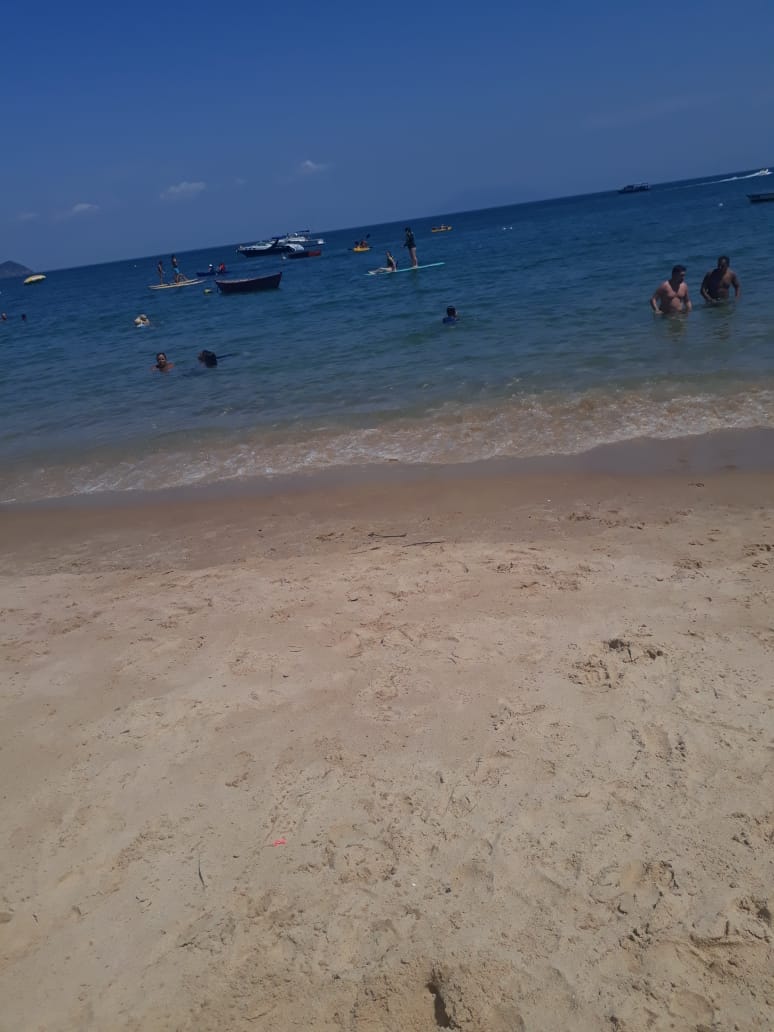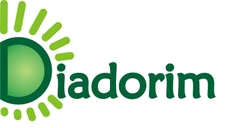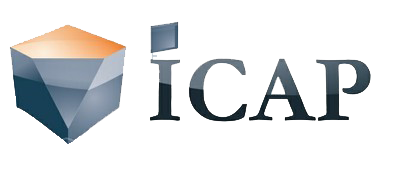Aplicação da abordagem fenomenológica e estudo epistêmico no turismo
análise dos artigos publicados em periódicos
DOI:
https://doi.org/10.29149/mtr.v4i1.5020Palavras-chave:
Fenomenologia, Epistemologia, Turismo, Artigos científicos.Resumo
A abordagem fenomenológica começou a ser empregada recentemente nos estudos de turismo, considerada por muitos autores como a teoria que melhor explica a dinâmica transdisciplinar da área, devido ao turismo ser um fenômeno dinâmico. As investigações sobre a comunicação científica são essenciais para a compreensão do desenvolvimento do conhecimento. Assim, o objetivo da presente investigação é identificar: a) utilização da abordagem fenomenológica nas pesquisas em turismo b) discussão sobre a abordagem fenomenológica em pesquisas de turismo c) discussão sobre epistemologia e turismo, no que tange ao Brasil, a América Latina e Internacional. Para esse trabalho exploratório e descritivo, realizou-se uma pesquisa bibliométrica em periódicos da área de turismo, selecionados em decorrência de seu Fator de Impacto (FI) no ano de 2014 e pela seleção Sistema Qualis. Dessa maneira, a investigação baseou-se nos periódicos internacionais: Annals of Tourism Research e Tourism Management e nos periódicos específicos da América Latina: Estudios y Perspectivas em Turismo, Caderno Virtual de Turismo e Turismo: Visão e Ação. E a amostra considerou o recorte temporal entre os anos de 2010 e 2014. Foram analisados 1.552 artigos selecionados a partir do emprego no título, resumo e palavras-chave, dos vocábulos: fenomenologia – fenomenología - phenomenology, fenomenológico – fenomenológica - phenomenological, epistemologia – epistemologia – epistemology. Os resultados desta pesquisa, revelam um mapeamento da produção científica associada ao método fenomenológico. Revela-se, que com base nos indicadores analisados, as pesquisas contribuem para o reconhecimento científico da área, além de tratarem de assuntos relevantes, porém, pouco discutido e aplicado atualmente. A pesquisa é relevante, visto que estudos voltados à epistemologia do turismo são necessários para o reconhecimento científico da área.
Referências
Araujo, C. A. (2006) Bibliometria: evolução histórica e questões atuais. Em Questão, 12(1), 11-32.
Beni, M. (1998) Análise estrutural do turismo. São Paulo: Senac São Paulo.
Castillo Nechar. M. (2007) La investigación y epistemologia del turismo: oportes y retos. Revista Hospitalidade. 4(2), 79-95.
Cooper, C. (2003) Progress in Tourism Research. In Cooper, C (Ed.) Classic reviews in tourism. Clevedon: Channel View Publications.
Demo, P. (1995) Metodologia científica em ciências sociais. São Paulo: Atlas.
Dencker, A. F. M. (1998) Métodos e Técnicas de Pesquisa em Turismo. São Paulo: Futura.
Dieckow, L. M. (2015) Turismo. Um abordaje micro y macro econômica. Disponível em: http://www.eumed.net/libros/2010b/678/. Acesso em: 12 de julho de 2015.
Ferreira, A. G. C. (2010) Bibliometria na avaliação de periódicos científicos. Revista de Ciência da Informação, 11(3), 74-92.
Gil, A. C. (2002) Como elaborar projetos de pesquisa. São Paulo: Atlas.
Hall, M. (2011) Publish and perish? Bibliometric analysis, journal ranking and the assessment of research quality in tourism”. Tourism Management, 32(1), 16-27.
Heidegger, M. (2006) Ser e tempo. Tradução Márcia Sá Cavalcante Schuback. Petrópolis: Vozes.
Hoffmann, M. (1999) Problems with Peirce's Concept of Abduction. Foundations of Science, 4(1), 271–305.
Husserl, E. (1990) A ideia da fenomenologia. Lisboa: Edições 70.
Leiper, N. (1981) Towards a cohesive curriculum in tourism: the case for distinct discipline. Annals of Tourism Research, 8(1), 69-84.
Leiper, N. (2000) An emerging discipline. Annals of Tourism Research, 27(3), p. 805-809.
Lima, A. B. M. (2014) O que é fenomenologia?. In Lima, A. B. M. (Org.) Ensaios sobre fenomenologia. Husserl, Heidegger e Merleau-Ponty. Ilheús, BA: Editora da UESC.
Lyotard, J-F.(1967) A fenomenologia. São Paulo: Difusão Européia do Livro.
Macias-Chapula, C. A. (2009) O papel da informetria e da cienciometria e sua perspectiva nacional e internacional. Ciência da Informação, 27(2), 134-140.
Martins, G. de A., & Theóphilo, C. R. (2009) Metodologia da investigação científica para ciências sociais aplicadas. 2 ed. São Paulo: Atlas.
Marujo, N. (2013) A pesquisa em turismo: reflexões sobre as abordagens qualitativa e quantitativa. Revista de investigácion en turismo desarollo local - Turydes, 6(14), 1-16.
Medeiros, M. L., Passador, J. L., & Becheleni, D. G. (2010) A fenomenologia e a pesquisa em turismo: reflexões para aplicação com base no turismo gastronômico. Turismo: Visão e Ação, 13(1), 20-34.
Merleau-Ponty, M. (1999) Fenomenologia da percepção. São Paulo: Martins Fontes.
Moreira, D. A. (2002) O método fenomenológico na pesquisa. São Paulo: Pioneira Thomson Learning.
Nechar, M. C. (2011) Epistemologia critica del turismo. Qué es eso?. Turismo em análise, 22(3), 516-538.
Panosso Neto, A. (2008) Filosofia do turismo: teoria e epistemologia. Trillas: México.
Pearce, D. (2012) Frameworks for Tourism Research. Wallingford: Cabi International.
Pearce, D., & Butler, R. (2010) Introduction - looking back, moving forward. In Pearce, D., & Butler, R, (Eds.) Tourism Research: a 20:20 vision. Goodfellow: London.
Peirce, C. S. (1975) Textos de Charles Sanders Peirce. InMota, O. S. (Ed.) Semiótica e filosofia. 2 ed. São Paulo: Cultrix.
Pernecky, T.; Jamal, T. (2010) (Hermeneutic) Phenomenology in tourism studies. Annals of Tourism Research, 37(4), 1055-1075.
Phillimore, J., & Goodson, L. (2004) Progress in qualitative research in tourism: epistemology, ontology and methodology. In Phillimore, J., & Goodson, L. (Eds.) Qualitative Research in Tourism: ontologies, epistemologies and methodologies, Routledge, London.
Qualis periódicos (2015) Plataforma Sucupira. Disponível em: https://sucupira.capes.gov.br/sucupira/public/consultas/coleta/veiculoPublicacaoQualis/listaConsultaGeralPeriodicos.jsf?. Acesso em: 05 de maio de 2015.
Rejowski, M. (2010) Produção científica em turismo: análise de estudos referenciais no exterior e no Brasil. Turismo em análise, 21(2), 224-246.
Santos, G. E. de O.; Rejowski, M. (2013) Comunicação Científica em Turismo no Brasil - Análises descritivas de períodos entre 1990 e 2012. Revista brasileira de pesquisa em turismo, 7(1), 149-167.
Schulter, R. G. (2003), Metodologia da Pesquisa em Turismo e Hotelaria. São Paulo: Aleph.
Strehl, L. (2005) O fator de impacto do ISI e a avaliação da produção científica: aspectos conceituais e metodológicos. Ciência da Informação, 34(1), 19-28. http://dx.doi.org/10.1590/S0100-19652005000100003.
Tribe, J. (1997) The indisciplined of tourism. Annals of Tourism Research, 24(3), 809-813.
Tribe, J. (2000) Indisciplined and unsubstantiated. Annals of Tourism Research, 27(3), 809-813.
Tribe, J. (2004). Knowing about tourism. Epistemological issues. In Phillimore, J. & Goodson, L. (Eds.), Qualitative research in tourism. Ontologies, epistemologies and methodologies. London: Routledge.
Tribe, J.; Airey, D. (2007), Developments in tourism research. Amsterdam: Elsevier.
Downloads
Publicado
Como Citar
Edição
Seção
Licença
Autores que publicam nesta revista concordam com os seguintes termos:
- Autores mantém os direitos autorais e concedem à revista, sem ônus para a mesma, o direito de primeira publicação, com o trabalho simultaneamente licenciado sob a Licença Creative Commons Attribution que permite o compartilhamento do trabalho com reconhecimento da autoria e publicação inicial nesta revista
- Autores têm autorização para assumir contratos adicionais separadamente, para distribuição não-exclusiva da versão do trabalho publicada nesta revista (ex.: publicar em repositório institucional ou como capítulo de livro), com reconhecimento de autoria e publicação inicial nesta revista.
- Autores assumem exclusiva responsabilidade pelas suas opiniões emitidas nos trabalhos publicados nesta revista
















